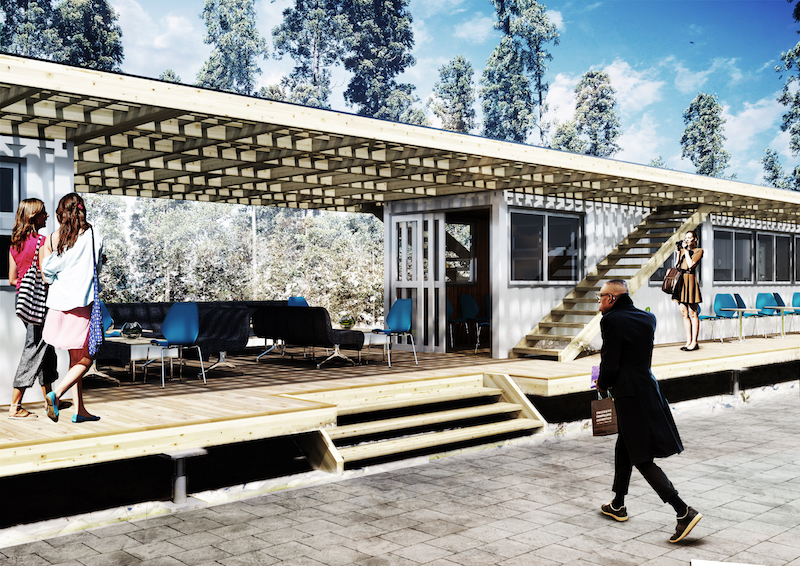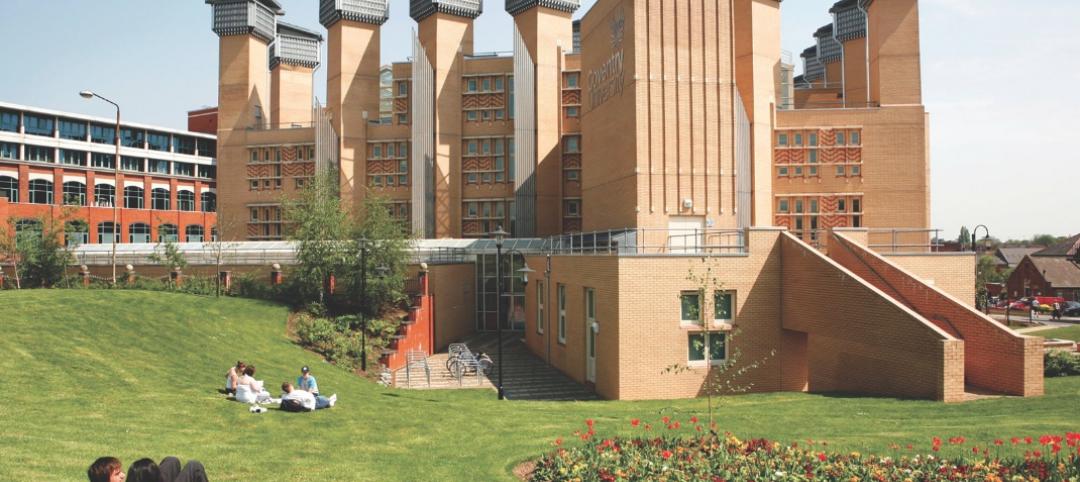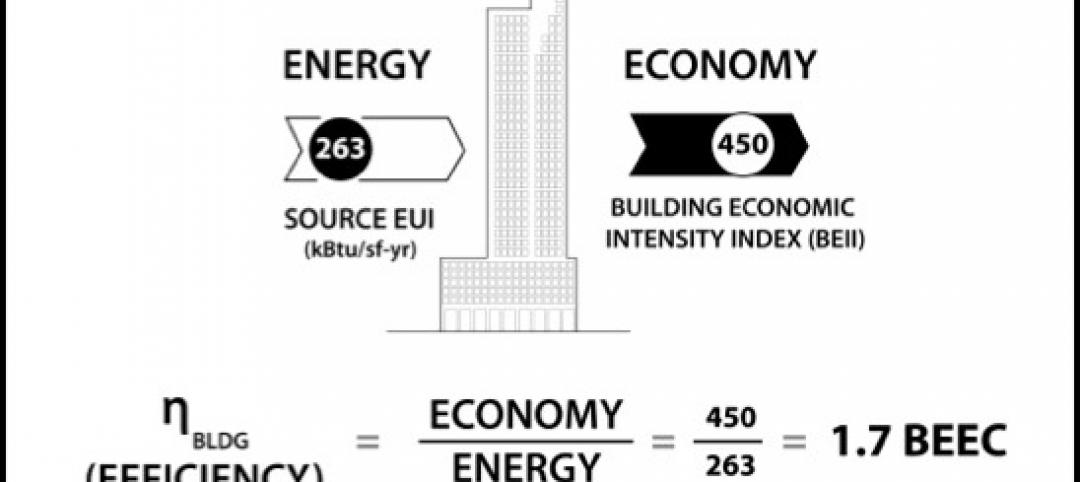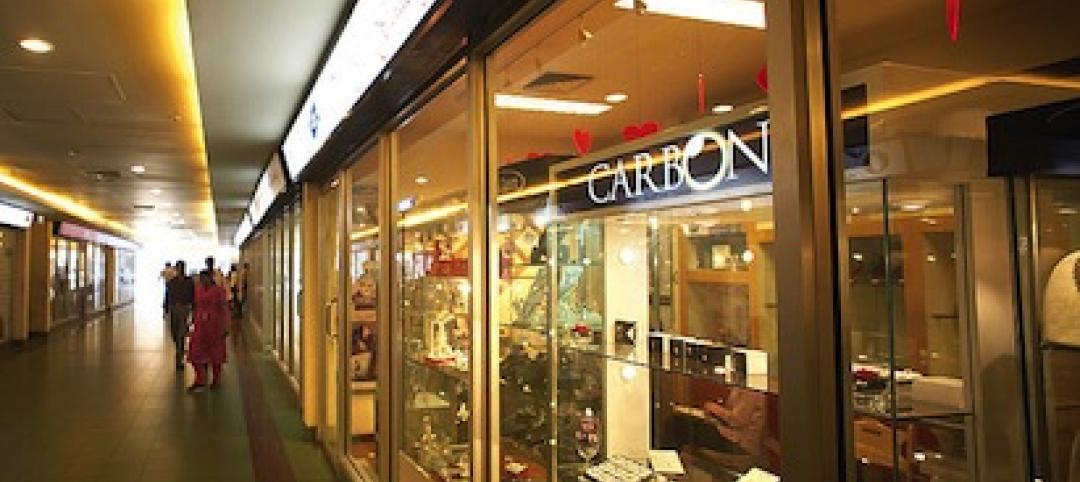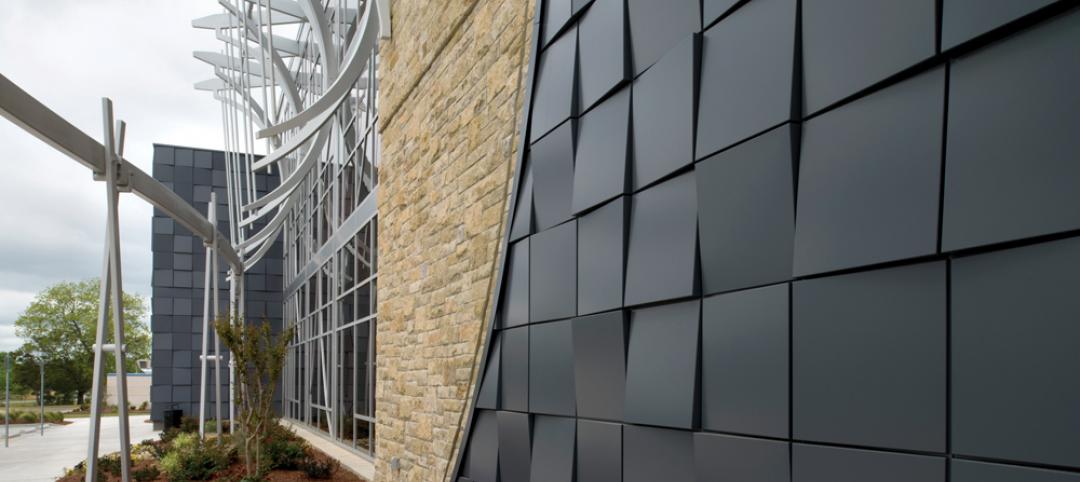Lego Lunch, a planned fast food restaurant for Siauliai, Lithuania, will be built using recycled shipping containers to create a modular and replicable structure. Each module is independent, can be easily reproduced, and has a specific function attached to it, which helps to reduce costs.
The building faces south to take advantage of the natural light and heat provided by the sun. However, because the building is in a cold climate, an LED lighting system and insulation are included in the renovated containers.
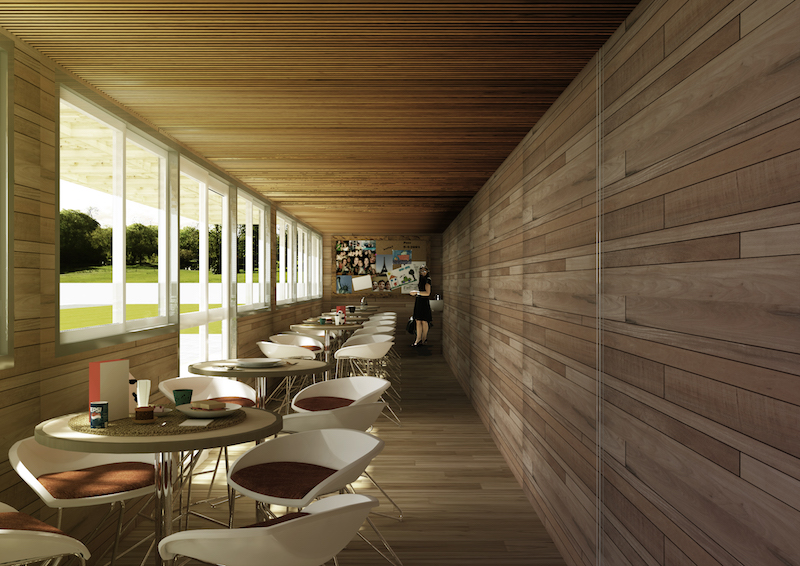 Rendering courtesy of Hermann Kamte & Associates.
Rendering courtesy of Hermann Kamte & Associates.
The containers act as the load-bearing structures but will be highlighted with wood and glass. A wooden trellis is placed on top of all of the containers and creates an awning in a space between two of the containers, under which customers can sit and relax. The stairs and the platforms surrounding the outside of the containers are made of wood and metal. Wood is also used on the interior walls of the containers. Glass windows create a bright, natural-light filled interior with views of the surrounding landscape.
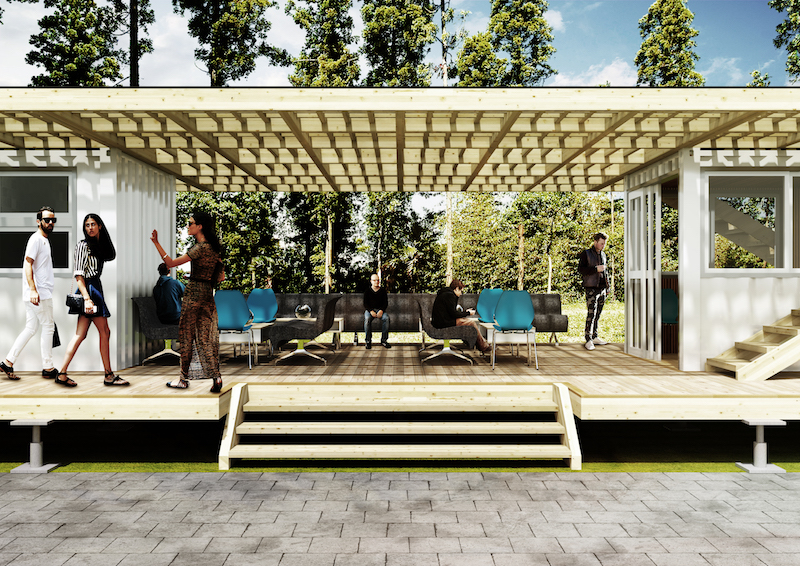 Rendering courtesy of Hermann Kamte & Associates.
Rendering courtesy of Hermann Kamte & Associates.
Hermann Kamte & Associates, the project’s architect, describes the structure as “serviceable, marketable, economical, sustainable, and ecological.”
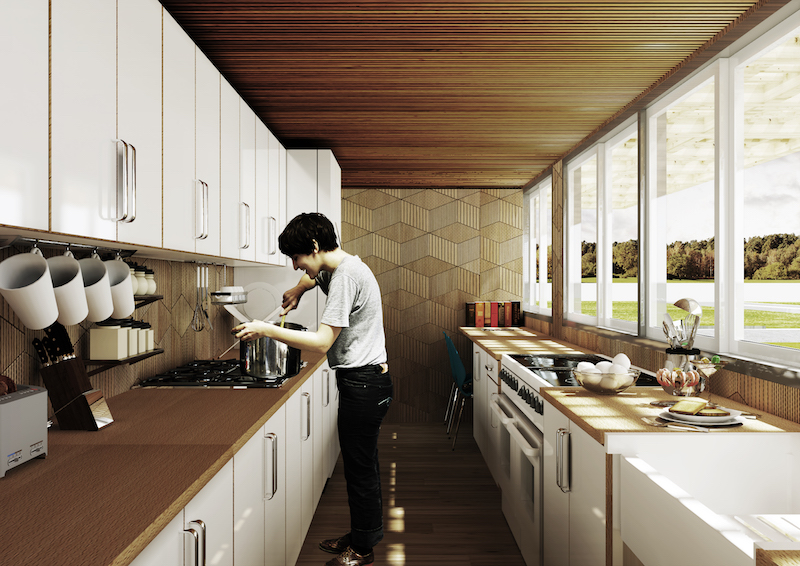 Rendering courtesy of Hermann Kamte & Associates.
Rendering courtesy of Hermann Kamte & Associates.
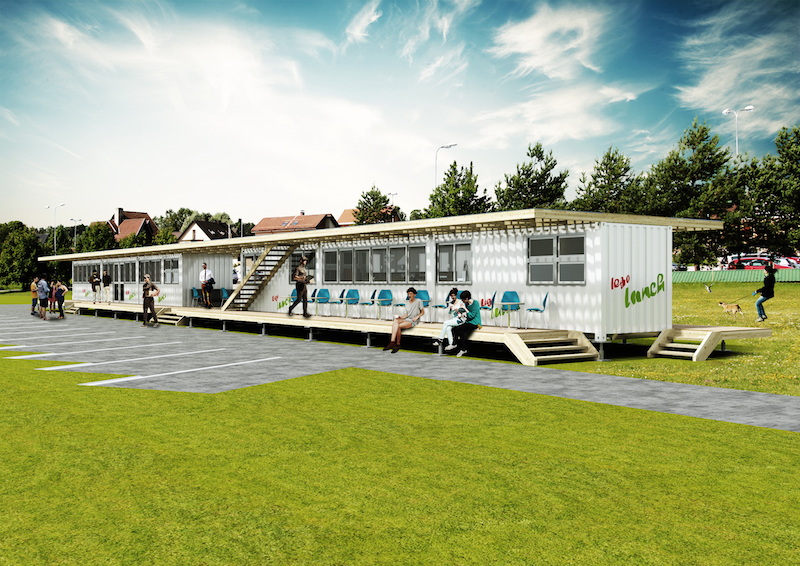 Rendering courtesy of Hermann Kamte & Associates.
Rendering courtesy of Hermann Kamte & Associates.
Related Stories
| Jan 11, 2014
Getting to net-zero energy with brick masonry construction [AIA course]
When targeting net-zero energy performance, AEC professionals are advised to tackle energy demand first. This AIA course covers brick masonry's role in reducing energy consumption in buildings.
Smart Buildings | Jan 7, 2014
9 mega redevelopments poised to transform the urban landscape
Slowed by the recession—and often by protracted negotiations—some big redevelopment plans are now moving ahead. Here’s a sampling of nine major mixed-use projects throughout the country.
| Dec 31, 2013
Top 10 blog posts from 2013
BD+C editors and our contributors posted hundreds of blogs in 2013. Here's a recap of the most popular topics. They include valuable lessons from one of the first BIM-related lawsuits and sage advice from AEC legend Arthur Gensler.
| Dec 20, 2013
Can energy hogs still be considered efficient buildings? Yes, say engineers at Buro Happold
A new tool from the engineering firm Buro Happold takes into account both energy and economic performance of buildings for a true measure of efficiency.
| Dec 13, 2013
Safe and sound: 10 solutions for fire and life safety
From a dual fire-CO detector to an aspiration-sensing fire alarm, BD+C editors present a roundup of new fire and life safety products and technologies.
| Dec 10, 2013
16 great solutions for architects, engineers, and contractors
From a crowd-funded smart shovel to a why-didn’t-someone-do-this-sooner scheme for managing traffic in public restrooms, these ideas are noteworthy for creative problem-solving. Here are some of the most intriguing innovations the BD+C community has brought to our attention this year.
| Nov 27, 2013
Retail renaissance: What's next?
The retail construction category, long in the doldrums, is roaring back to life. Send us your comments and projects as we prepare coverage for this exciting sector.
| Nov 27, 2013
Exclusive survey: Revenues increased at nearly half of AEC firms in 2013
Forty-six percent of the respondents to an exclusive BD+C survey of AEC professionals reported that revenues had increased this year compared to 2012, with another 24.2% saying cash flow had stayed the same.
| Nov 27, 2013
Wonder walls: 13 choices for the building envelope
BD+C editors present a roundup of the latest technologies and applications in exterior wall systems, from a tapered metal wall installation in Oklahoma to a textured precast concrete solution in North Carolina.
| Nov 26, 2013
Construction costs rise for 22nd straight month in November
Construction costs in North America rose for the 22nd consecutive month in November as labor costs continued to increase, amid growing industry concern over the tight availability of skilled workers.


